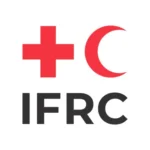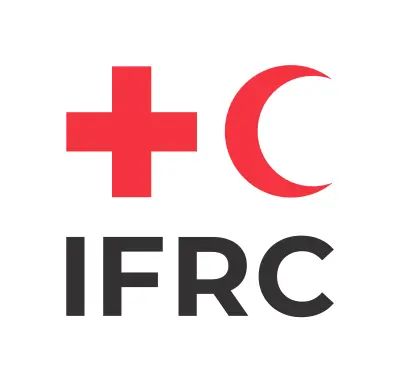
International Federation of Red Cross And Red Crescent Societies
Organizational Context
The International Federation of Red Cross and Red Crescent Societies (IFRC) is the world’s largest humanitarian organization, with a network of 191-member National Societies. The overall aim of the IFRC is “to inspire, encourage, facilitate, and promote at all times all forms of humanitarian activities by National Societies with a view to preventing and alleviating human suffering and thereby contributing to the maintenance and promotion of human dignity and peace in the world.” The IFRC works to meet the needs and improve the lives of vulnerable people before, during and after disasters, health emergencies and other crises.
The IFRC is part of the International Red Cross and Red Crescent Movement (the Movement), together with its member National Societies and the International Committee of the Red Cross (ICRC). The work of the IFRC is guided by the following fundamental principles: humanity, impartiality, neutrality, independence, voluntary service, unity, and universality. At Geneva level, the Health and Care Department’s (HCD) New Strategic Direction 2023 focuses on Health Systems Strengthening and WASH Systems Strengthening through four pillars: Global Health Security, Global Health Protection (UHC), Global WASH Services and Transformative Partnership.
The Global Health Protection (UHC) pillar houses and chairs the Alliance for Malaria Prevention (AMP), a partnership of more than 40 organizations, including government, private sector, faith-based and humanitarian organizations, focused on three main activities: (1) coordination of partners involved in insecticide-treated net (ITN) campaign and continuous distribution activities; (2) development of operational guidance for planning and implementing ITN distribution through campaigns and other channels based on an iterative process; and (3) providing technical assistance to national malaria programmes and partners based on requests. AMP’s activities support achievement of the WHO Global Technical Strategy (GTS) targets for high coverage and use of ITNs. AMP is a workstream within the RBM Partnership to End Malaria. Harnessing the global leadership and management systems of IFRC, AMP is uniquely positioned to support and advance country-level efforts to optimize ITN distribution and ensure that the right nets reach the right people at the right time through both campaign and continuous distribution channels.
In 2020, IFRC/AMP was awarded a three-year grant by the Bill and Melinda Gates Foundation (BMGF) to identify ways to improve operational efficiency for ITN campaigns and develop associated operational guidance for national malaria programmes and partners. AMP’s work under this grant provided key lessons learned and practical guidance for improving the implementation of ITN distribution through multiple channels. In 2023, a new grant was awarded to IFRC/AMP by BMGF focused on optimizing ITN access in the face of limited resources for the fight against malaria. In this grant, AMP will focus on implementing activities across five workstreams designed to address identified gaps. The primary objectives are to enhance data utilization for informed decision-making and to leverage digital tools for optimization of ITN campaigns. These workstreams ultimately aim to reduce the malaria burden through effective malaria prevention with ITNs.
Job Purpose
The overall objective of this consultancy is to support AMP to develop toolkit on campaign digitalization, covering a range of key areas such as governance and management frameworks, context and operational analysis for decision-making, resource requirements (technical, human, financial, infrastructure), key considerations for planning and budgeting, elements for supporting platform selection, cost analysis, establishment of georepositories, integration and data use/reuse to support effective and efficient service delivery, etc.
Job Duties and Responsibilities
Workstream 2: Estimated LOE – 50 days
The consultant’s primary responsibilities include:
- Literature/document review to compile information about existing toolkits, resources and supporting documents/tools for planning and implementation of digitized campaigns (end-to-end, specific components, etc.) including key considerations and lessons learned from planning and implementation experience that should be accounted for in the consultancy deliverables.
- Develop an outline of the structure for the campaign digitalization toolkit, with main sections, sub-sections and identification of existing resources and resources to be developed for a comprehensive final document (that avoids duplicating work already completed by other disease programs and partners); propose the layout and visualization of the toolkit for access on the AMP website.
- Lead the development of a comprehensive toolkit for digital campaign planning and budgeting; this will include coordination and collaboration with partners and consensus generation among key stakeholders prior to finalization of different toolkit sections.
- Develop (using existing tools and materials) a main section or annex to the toolkit that covers cost considerations, timelines and requirements for a digitalization plan of action (macroplan).
- Gather and document successful examples and use cases of planning, budget, and operationalization of digitalization for campaign service delivery.
- Collect, compile, analyse and summarize findings regarding the long-term costs and value-added of digital platforms, considering changing needs and technological advancements; include approaches such as bring your own device or others that are designed to leverage existing resources in support of more effective and high-quality data for decision-making and programmatic reporting.
- Conduct an in-depth analysis of the costs associated with different platforms, considering their value over time, including aspects such as developments, interoperability, and data-sharing capabilities.
Deliverables:
- A toolkit on campaign digitalization, with the final product aligned to the agreed structure and content as decided by key stakeholders in the campaign digitalization space.
- A compilation of existing tools and resources (including online training courses, adaptable tools, etc.) that national disease programs can access and use to enhance their understanding, planning and budgeting for digitalization of campaigns (end-to-end or component-specific).
- A comprehensive cost analysis report of digital platforms.
- A final report that details the work achieved and provides a list of tools and resources that are currently not available/need to be developed to complete the campaign digitalization toolkit; the report should summarize key points of discussion with stakeholders for which consensus was not achieved and which require further discussion.
Alignment to the IFRC’s Strategy 2030
The Alliance for Malaria Prevention’s mandate aligns to the Federation’s Strategy 2030 as it supports the achievement of strategic aims:
- Save lives, protect livelihoods and strengthen recovery from disasters and crises
- Enable healthy and safe living.
Project objectives and outcomes:
Objective #1: Optimizing malaria prevention with ITNs through mass distribution campaigns and continuous distribution channels.
Desired outcomes: To address inefficiencies in planning and implementation of mass ITN distribution campaigns through improved planning, budget and operationalization of digital tools for data collection and to better understand best practices for the digital transition for future campaigns.
Support to be provided to the consultant
The consultant will be supported by the Manager – Malaria Programmes, Officer – Country Support, Senior Officer – Optimizing ITN Access Project.
Time allocation, for budget purposes
This budget is based on an estimate of 50 billable working days.
The consultancy timeframe will be from 1st March 2023 to 30th September 2024.
Notes
- The consultant will be contracted by the IFRC and the standard contractual terms will apply.
- This consultancy contract entails some anticipated travels as part of the completion of the assignment if the conditions allow.
Position Requirements
Education
Required
- Advanced degree (master’s level) in public health, ICT, data science, health information systems, international development or related field.
Experience
Required
- Minimum of 5 years of increasingly responsible professional experience, especially in the fields of digital health, health information systems, programme management.
- Experience working at the national or international level for convening stakeholders and governance mechanisms, translating policies into action, adapting and implementing digital systems for health system strengthening and addressing programme needs.
- Experience with implementation and country-level support on digital health, data and health information systems, including the appropriate and ethical use of technology for development, as well as with emerging or frontier technologies.
- Experience in budgeting and cost analysis of digital systems.
Preferred
- Field experience in direct implementation of digital health systems a strong asset.
Knowledge, Skills and Languages
Required
- Fluent written and spoken English.
- Familiarity with health campaign digitalization in malaria, immunization or related field.
- Ability to work independently and coordinate collation of information from multiple stakeholders.
- Expertise in digital campaign strategy and execution.
- Demonstrated ability to organize thoughts and get clarity of ideas after multiple inputs and ideas and express that clarity through their writing.
Preferred
- Knowledge of French is desirable.
How to apply
- Please submit your application via IFRC website.
- Please submit your application in English only.
- Please include in your motivation letter your availability and your current Daily Fee Rate in CHF.
IFRC values equal opportunity, diversity and inclusivity. We encourage applications from all suitably qualified candidates, irrespective of sex, gender, sexual orientation, marital or parental status, nationality, class, political opinions, ethnic or social origin, disability, religion, or belief.
Deadline: 4 Feb 2024

